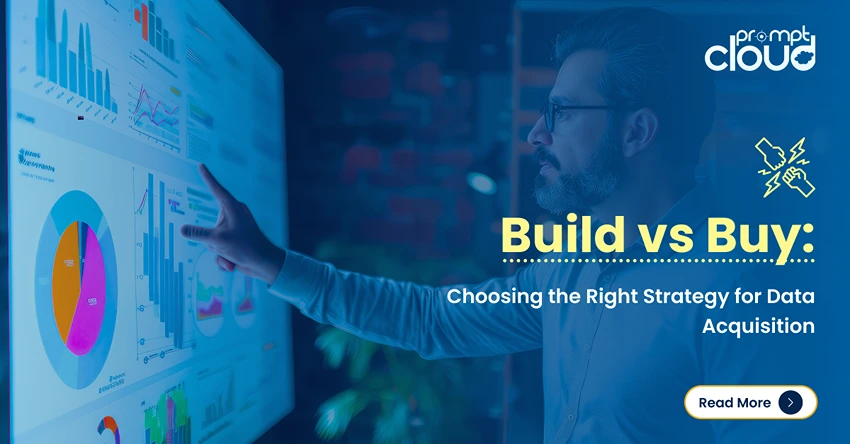In the world of digital technology, Big Data is changing the way information is collected, organized, processed and stored. These changes have presented some great opportunities for economic growth, productivity, innovation, and other aspects of government policy making. We are witnessing increasing reliance and usage of public data in the government policy making. The topic, Government Policy Making will be Impacted by Big Data, has greater relevance today, than ever before.
Big data has also seen a recent growth in governance. The government is gradually embracing big data, especially when it comes to healthcare delivery, education, security and other aspects of policy making.
Before Utilising Big Data for Policy Making
1. Public’s Point of View
Individuals indulge in various activities on a daily basis. These activities include using the internet, social media, credit cards and others. All these activities provide opportunities for the government to gather valuable information and use them to the advantage of the public. But, the gathering of personal information should also include public awareness and acceptance.
2. The Ownership of the Data
People also feel concerned about the ownership of the collected data. The government needs to provide valuable pieces of evidence regarding the privacy policy and security of the data gathered from the society. People want to be assured about who is controlling their information and how it is being used.
3. The Potential Outcomes of Data-Driven Policy Making
Government policies are going to be beneficial only when it is based on correct and updated information. Big Data surely presents a broader map to work on here. But the correctness of the data is equally important. Otherwise, the policies might not be as beneficial as predicted.
Factors that are Driving Policy Making towards Big Data
Here are all the factors that are driving policy making process towards Big Data.
1. Speed in Data Collection
The availability of advanced algorithms and modern hardware present better opportunities for information collection and analytics. The emergence of web scraping services has also made it possible to easily extract data from the web at scale. The traditional methods can’t cope with the speed that Big Data processes offer. And that is what drives both society and government policy making towards Big Data.
2. Diversity of the Collected Data
Another valuable reason to use Big Data is the variety of information a government can gather. There are two aspects of diversity that Big Data offers. One is definitely the broader information of different sectors. Along with that, it also presents the capacity to obtain data in different formats such as text, audio or video. This way, the value of the data increases to a great extent, and analysis becomes much easier.
3. Volume of the Data
As is obvious from the term Big Data, the true power of Big Data lies in the huge amount of data that’s readily available to be incorporated into different processes. Speed and diversity allow the algorithms to collect a large volume of data in an organized manner. The data is stored in modern systems, which makes data sorting and assessment much easier. So, the governments don’t just collect a huge volume of data, but process it efficiently in an organized manner. As a result, Big Data delivers much-needed security, access and systematic process to the policy making.
Potential Benefits of Big Data in Government Policy Making
The advanced properties of Big Data are going to present some empowering benefits to the government policy making. Here are a few expected impact of Big Data in government policy making.
1. Answering Important Questions Efficiently
Managing policy making with better quality data from different sectors, a government can answer all the valuable questions that decide the success of any policy.
- What does the public want?
- What does the economy lack?
- Which sector requires immediate modifications?
And more.
Having answers to these and many other important questions will be possible with Big Data. And that will improve the abilities of the government to make right policies, for the right sectors and implement at the right time.
2. Creating a Centralized Data System
Big data will allow government bodies to create a centralized system of all the collected data. This way, the security and accessibility of the data will get improved to a great extent. The centralized system of information will provide much-needed organized behavior in policy making.
3. Validating Data before Taking Actions
Government can validate all their data faster with Big Data, which is the key to designing better policies. The credibility assurance of the available data will help in making informed decisions at every step of policy making. Big Data Analytics makes cleaning, sorting, assessment and other processes easier with the advanced technologies. So, the authorities are just required to leverage modern technologies in order to successfully validate the information and take actions.
4. Becoming Confident about the Policies
The validation of the data leads to the accuracy of the data. The authorities attain confidence in terms of data completeness, credibility, and consistency. This directly affects the outcomes of decision making. The reduced risks will make it easier to implement policies without worrying about potential issues.
5. Empowering All Sectors with Policy Implementation
The digital growth in modern environment is visible in all sectors. Individuals, businesses, and organizations, all are moving towards Big Data. So, by using the same technologies and methodologies in policy making, government can empower all sectors with their decisions. Effective data will become achievable with the integration of Big Data in policy making. And that will enhance the ability of government to cover all the different sectors in their policies.
6. Creating a Data-Driven Governance
The future of policy making lies in Big Data. People desire security, better leadership, and efficient lifestyle, and it all depends on the efficiency of the government. Big Data will offer that efficiency to the government, which will create a culture of data-driven governance. As a result, the policies will offer better success rates, acceptance and outcomes whenever applied.
Conclusion
The line between government policy making and Big Data has already started becoming seamless. The application is occurring on a global scale and governments are understanding and incorporating the valuable methodologies of Big Data. And that is what presents positive signs about the future of policy making.
The governments definitely does face a few challenges in order to implement big data technologies in policy making. The acceptance of the public and other challenges are going to be the biggest challenges. But the continuous shift of the world towards digital technologies presents brighter opportunities. It is important to understand those opportunities and act accordingly.



















